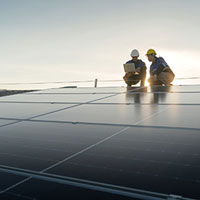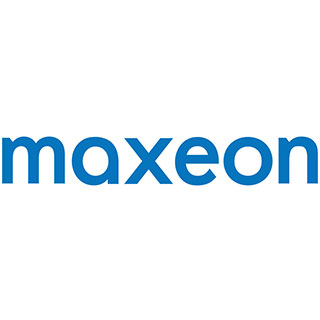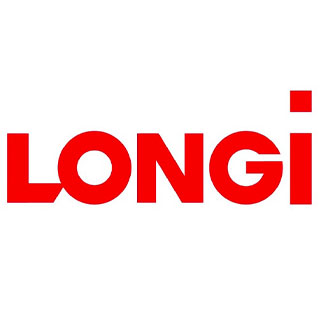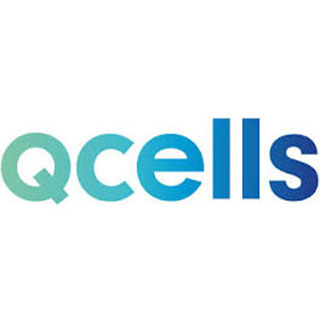Most efficient solar panels
Our top three high-efficiency picks

With more people around the world prioritizing carbon footprint reduction and sustainable living initiatives, home solar energy systems have become an increasingly popular option for generating clean, renewable energy. With so many different brands and types of panels are on the market, it can be tough to determine which solar panels are the most efficient and right for your home.
We took a close look at the most efficient solar panels available today and analyzed a range of factors, including panel efficiency, availability, performance and warranty options, to determine which panels offer the best choice for homeowners looking to make the switch to solar energy. To be sure that we're offering accurate and up-to-date information, we based our research on data from industry experts and manufacturers.
Our top picks
Compare our top 3 picks for efficient solar panels
|
|
The Maxeon Signature Black X Series is a top-of-the-line panel that’s durable and efficient, with a power output of up to 400 watts and a conversion efficiency over 21%. The panels are built to withstand harsh weather conditions, making them useful in more severe environments — the unique cell design reduces the risk of hot spots, and the sturdy aluminum frame protects against wind and snow.
What we like
What to consider
What reviewers say
|
|
LONGi Solar is a global manufacturer of photovoltaic (PV) solar products. The company produces high-performance and cost-competitive panels. The Hi-MO6 is one of LONGi's top-performing products, known for its high efficiency, longevity and affordability. The Hi-MO6 features monocrystalline PERC technology, providing an efficiency of 22.8% and a power output of up to 360 watts.
What we like
What to consider
What reviewers say
One customer from California wrote: “Complete Solar didn't waste any time and got right to it like they said they were going to do it. We got along well with them, and we communicated back and forth. I watched them put the panels up and everything that was needed. They also explained to me what they were doing, how and why they were doing it. Any other questions that I had to ask were answered too. It was very cleanly done.”
|
|
Qcells’ Q.Peak Duo BLK ML-G10+ panels offer great efficiency and feature a poly-PERC cell technology to enhance power output. The Q.Peak Duo’s black-framed design provides a sleek and elegant look for homes and businesses alike, and the panels’ power output of up to 400 watts and module efficiency of 20.6% make them one of the higher-performing solar panels on the market.
What we like
What to consider
What reviewers say
Where to get our top picks for high-efficiency panels
Typically, solar manufacturers sell systems through partner companies. If you’re interested in any of our top three picks, you might consider working with SunPower, Complete Solar, Sunlux or Palmetto Solar.
|
|
|
Which kind of solar panel is most efficient?
Solar panels are made of a semiconducting material (typically silicon) that helps convert light energy, in the form of photons, into electricity. The three most common types of solar panels — monocrystalline, polycrystalline and thin-film — are typically available for both home and commercial use, but most residential installations use monocrystalline or polycrystalline panels.
Monocrystalline
Monocrystalline solar panels are made from a single-crystal structure and are considered the most efficient type of panel on the market. They’re a good choice for homes or businesses with limited space due to their high energy output per unit area.
Polycrystalline
Polycrystalline solar panels are made from multiple-crystal structures and have a slightly lower efficiency rating than monocrystalline panels. Polycrystalline panels are, however, more affordable, making them a good choice for those on a budget.
Thin-film panels
Thin-film panels are made from a thin layer of photovoltaic material, and they’re the least efficient of the three panel types. Thin-film panels are flexible and lightweight, which makes them ideal for applications where traditional panels may not fit, but their low efficiency means you need more space to generate the same amount of power as monocrystalline or polycrystalline panels.
Solar panel efficiency
Solar panel efficiency refers to the amount of sunlight a panel can convert into usable electricity. The typical efficiency rating for a solar panel ranges from 15% to 20%, but high-efficiency panels may have ratings up to about 22%.
Solar panels typically have an efficiency rating of 15% to 20%, but some high-efficiency panels have ratings over 22%.
High-efficiency panels are often more expensive, but they can produce more energy in the same amount of space. By using high-efficiency panels, you can reduce the number of panels required to generate a certain amount of energy, which can save money on installation costs and minimize the amount of space your system takes up on your property.
High-efficiency panels can be especially useful in areas with limited sunlight or when the available space for installation is restricted.
In general, the higher the efficiency rating, the better the panel at converting sunlight into usable electricity, so the efficiency of a panel is critical to keep in mind when choosing a solar system for your home or business.
Factors that affect solar panel efficiency
Efficiency ratings do vary by panel brand, but solar panel efficiency also depends on environmental factors, the kind of light your panels receive and the type of coating on the panel.
- Environmental factors: Environmental factors like temperature, weather and shading can all affect the efficiency of solar panels. High temperatures can degrade the performance of solar panels, and shading from trees or other obstacles can reduce the amount of light that reaches the panels — and therefore the amount of energy they can produce.
- Wavelength: Wavelength also affects solar panel efficiency. Solar panels are designed to absorb specific wavelengths of light, so if the light that reaches the panels isn’t the right color, some of it won’t convert into usable energy.
- Reflection: The amount of light reflected by a solar panel can also affect its efficiency. The reflectivity of a panel is determined by its coating, which can range from a highly reflective aluminum coating to an anti-reflective coating to minimize reflection and maximize the amount of light that reaches the panel itself. The coating you get depends on the specific needs of your system.
FAQ
Can solar panels be 100% efficient?
Traditional solar panels cannot be 100% efficient. The maximum efficiency of solar panels refers to the percentage of sunlight converted into usable electricity. This amount depends on factors such as panel placement and the material of the panel. Currently, many high-efficiency panels offer an efficiency of about 20%.
What is the highest-efficiency solar panel?
One of the highest-efficiency solar panels currently available on the market is LONGi’s Hi-MO 6. This solar panel boasts an impressive maximum efficiency of 22.8%, thanks to recent improvements in solar cell technology.
How many solar panels do you need?
The number of solar panels you need depends on the amount of electricity you need, the size of your roof and the amount of sunlight your location receives. Average homes typically require about 17 to 25 400-watt panels to fully meet energy demands, but your requirements may vary, especially if you have a solar battery system. You can calculate the specific requirements of your home using the National Renewable Energy Laboratory’s calculator.
How long do solar panels work?
Solar panels typically have a life span of 25 to 30 years, with some panels lasting even longer. Warranties often reflect this life span, with the longest warranties reaching about 40 years and a typical warranty offering at least 25 years of coverage. The efficiency of solar panels may decrease slightly over time, typically by around 0.5% per year.
Article sources
- U.S. Department of Energy, " Homeowner's Guide to Going Solar ." Accessed Jan. 31, 2023.
- U.S. Environmental Protection Agency, " End-of-Life Solar Panels: Regulations and Management ." Accessed Jan. 31, 2023.
You’re signed up
We’ll start sending you the news you need delivered straight to you. We value your privacy. Unsubscribe easily.






